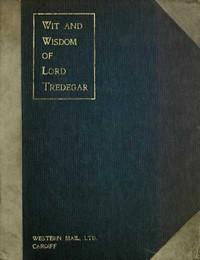|
|
Read this ebook for free! No credit card needed, absolutely nothing to pay.Words: 23307 in 11 pages
This is an ebook sharing website. You can read the uploaded ebooks for free here. No credit cards needed, nothing to pay. If you want to own a digital copy of the ebook, or want to read offline with your favorite ebook-reader, then you can choose to buy and download the ebook.

: The Age of Dryden by Garnett Richard - English literature Early modern 1500-1700 History and criticism; Dryden John 1631-1700@FreeBooksWed 07 Jun, 2023 'Thus the Flood came to its height; and 'tis not easy to represent to ourselves this strange scene of things, when the Deluge was in its fury and extremity; when the earth was broken and swallowed up in the abyss, whose raging waters rose higher than the mountains, and filled the air with broken waves, with an universal mist, and with thick darkness, so as nature seemed to be in a second chaos; and upon this chaos rid the distrest Ark, that bore the small remains of mankind. No sea was ever so tumultuous, as this, nor is there anything in present nature to be compared with the disorder of these waters; all the poetry, and all the hyperboles that are used in the description of storms and raging seas, were literally true in this, if not beneath it. The Ark was really carried to the tops of the highest mountains, and into the places of the clouds, and thrown down again into the deepest gulfs; and to this very state of the Deluge and of the Ark, which was a type of the Church in this world, David seems to have alluded in the name of the Church, Psalm xlii. 7, Abyss calls upon abyss at the noise of thy cataracts or waterspouts; all thy waves and billows have gone over me. It was no doubt an extraordinary and miraculous providence, that could make a vessel, so ill manned, live upon such a sea; that kept it from being dashed against the hills, or overwhelmed in the deeps. That abyss which had devoured and swallowed up whole forests of woods, cities, and provinces, nay the whole earth, when it had conquered all, and triumphed over all, could not destroy this single ship. I remember in the story of the Argonautics, Dion. Argonaut. l. i., v. 47, when Jason set out to fetch the Golden Fleece, the poet saith, all the gods that day looked down from Heaven to view the ship, and the nymphs stood upon the mountain-tops to see the noble youth of Thessaly pulling at the oars; we may with more reason suppose the good angels to have looked down upon this ship of Noah's; and that not out of curiosity, as idle spectators, but with a passionate concern for its safety and deliverance. A ship, whose cargo was no less than a whole world; that carried the fortune and hopes of all posterity, and if this had perished, the earth for any thing we know had been nothing but a desert, a great ruin, a dead heap of rubbish, from the Deluge to the conflagration. But death and hell, the grave, and destruction have their bounds. We may entertain ourselves with the consideration of the face of the Deluge, and of the broken and drowned earth, in this scheme, with the floating Ark, and the guardian angels.' FOOTNOTES: BUNYAN AND OTHER WRITERS OF FICTION. Of Bunyan's character there can be but one opinion, he was a truly Apostolic man. As no one's diction is more forcible, unadulterated Saxon, so no life has better expressed the sturdy, sterling virtues of the Englishman. A wider culture would have enriched both his mind and his writings, but with the probable result of turning a remarkable man into an ordinary one. His good sense and his humility are illustrated by a charming anecdote. 'Ah, Mr. Bunyan,' said a grateful hearer, 'that was a sweet sermon!' 'You need not tell me that,' replied Bunyan, 'the devil whispered it to me before I was well out of the pulpit.' 'Well, I told you before, how the prisoners were entertained by the noble Prince Emmanuel, and how they behaved themselves before him, and how he sent them away to their home with pipe and tabor going before them. And now you must think, that those of the town that had all this while waited to hear of their death, could not but be exercised with sadness of mind, and with thoughts that pricked like thorns. Nor could their thoughts be kept to one point; the wind blew with them all this while at great uncertainties, yea, their hearts were like a balance that had been disquieted with shaking hand. But at last as they, with many a long look, looked over the wall of Mansoul, they thought that they saw some returning to the town; and thought again, who should they be? At last they discerned that they were the prisoners. But can you imagine, how their hearts were surprised with wonder! Especially when they perceived also in what equipage, and with what honour they were sent home. They went down to the camp in black, but they came back to the town in white; they went down to the camp in ropes, they came back in chains of gold; they went down to the camp with their feet in tatters, but they came back with their steps enlarged under them; they went also to the camp looking for death, but they came back from thence with assurance of life; they went down to the camp with heavy hearts, but came back again with pipe and tabor playing before them. So, so soon as they were come to Eye-gate, the poor and tottering town of Mansoul adventured to give a shout; and they gave such a shout, as made the captains in the Prince's army leap at the sound thereof. Alas! for them, poor hearts, who could blame them, since their dead friends were come to life again! For it was to them as life from the dead, to see the ancients of the town of Mansoul to shine in such splendour. They looked for nothing but the axe and the block; but behold! joy and gladness, comfort and consolation, and such melodious notes attending of them, that was sufficient to make a sick man well. So when they came up, they saluted each other with Welcome, welcome, and blessed be he that spared you. They added also, we see it is well with you, but how must it go with the town of Mansoul, and will it go well with the town of Mansoul, said they? Then answered them the Recorder, and my lord Mayor, Oh! tidings! glad tidings! good tidings of good; and of great joy to poor Mansoul! Then they gave another shout, that made the earth to ring again. After this, they enquired yet more particularly, how things went in the camp, and what message they had from Emmanuel to the town. So they told them all passages that had happened to them at the camp, and every thing that the Prince did to them. This made Mansoul wonder at the wisdom and grace of the Prince Emmanuel; then they told them what they had received at his hands, for the whole town of Mansoul; and the Recorder delivered it in these words, Pardon, Pardon, Pardon for Mansoul; and this shall Mansoul know to-morrow. Then he commanded, and they went and summoned Mansoul to meet together in the market-place to-morrow, there to hear their general pardon read. 'But who can think what a turn, what a change, what an alteration this hint of things did make in the countenance of the town of Mansoul; no man of Mansoul could sleep that night for joy; in every house there was joy and music, singing and making merry, telling and hearing of Mansoul's happiness was then all that Mansoul had to do; and this was the burden of all their song, "Oh! more of this at the rising of the sun! more of this to-morrow! Who thought yesterday, would one say, that this day would have been such a day to us? And who thought, that saw our prisoners go down in irons, that they would have returned in chains of gold! Yea, they that judged themselves as they went to be judged of their judge, were, by his mouth, acquitted, not for that they were innocent, but of the Prince's mercy, and sent home with pipe and tabor."' 'Little tract on worming dogs, Whereof the name, in sundry catalogues, Is extant yet.' ESSAYISTS AND LETTER WRITERS, LITERARY HISTORIANS. Butler's remains were only partially printed in 1759, but the MSS. from which Thyer's publication was drawn were acquired in 1885 by the British Museum. His selection seems to have been in general exceedingly judicious, but the opportunity may be taken of giving some examples of Butler's unpublished thoughts: 'There is no better argument to prove that the Scriptures were written by divine inspiration than that excellent saying of our Saviour, If any man will go to law with thee for thy cloak, give him thy coat also. 'Birds are taken with pipes that imitate their own voices, and men with those sayings that are most agreeable to their own opinions. 'If the French nobility should follow our fashions, and send their children over to learn our language, and receive their education from us, we should have as glorious an opinion of ourselves, and as mean a value of them, as they have of us; and therefore we have no reason to blame them, but our own folly for it.' Free books android app tbrJar TBR JAR Read Free books online gutenberg More posts by @FreeBooks
: Der Deutsche Lausbub in Amerika: Erinnerungen und Eindrücke. Band 1 (von 3) by Rosen Erwin - United States Description and travel DE Prosa@FreeBooksWed 07 Jun, 2023

: Wit and Wisdom of Lord Tredegar by Morgan Godfrey Charles - Speeches addresses etc.; Morgan Godfrey Charles 1830-1913 Quotations@FreeBooksWed 07 Jun, 2023
|
Terms of Use Stock Market News! © gutenberg.org.in2025 All Rights reserved.






